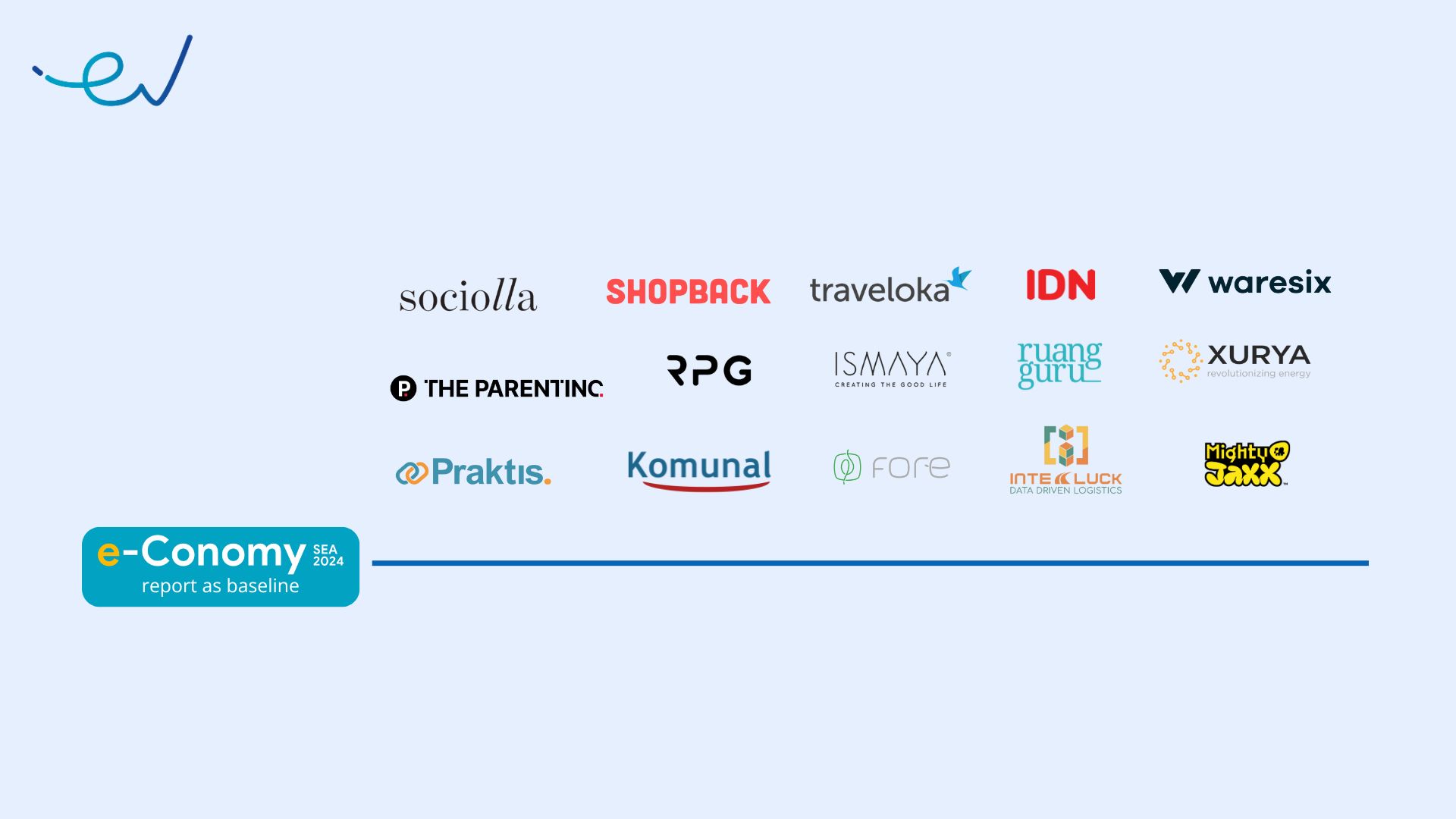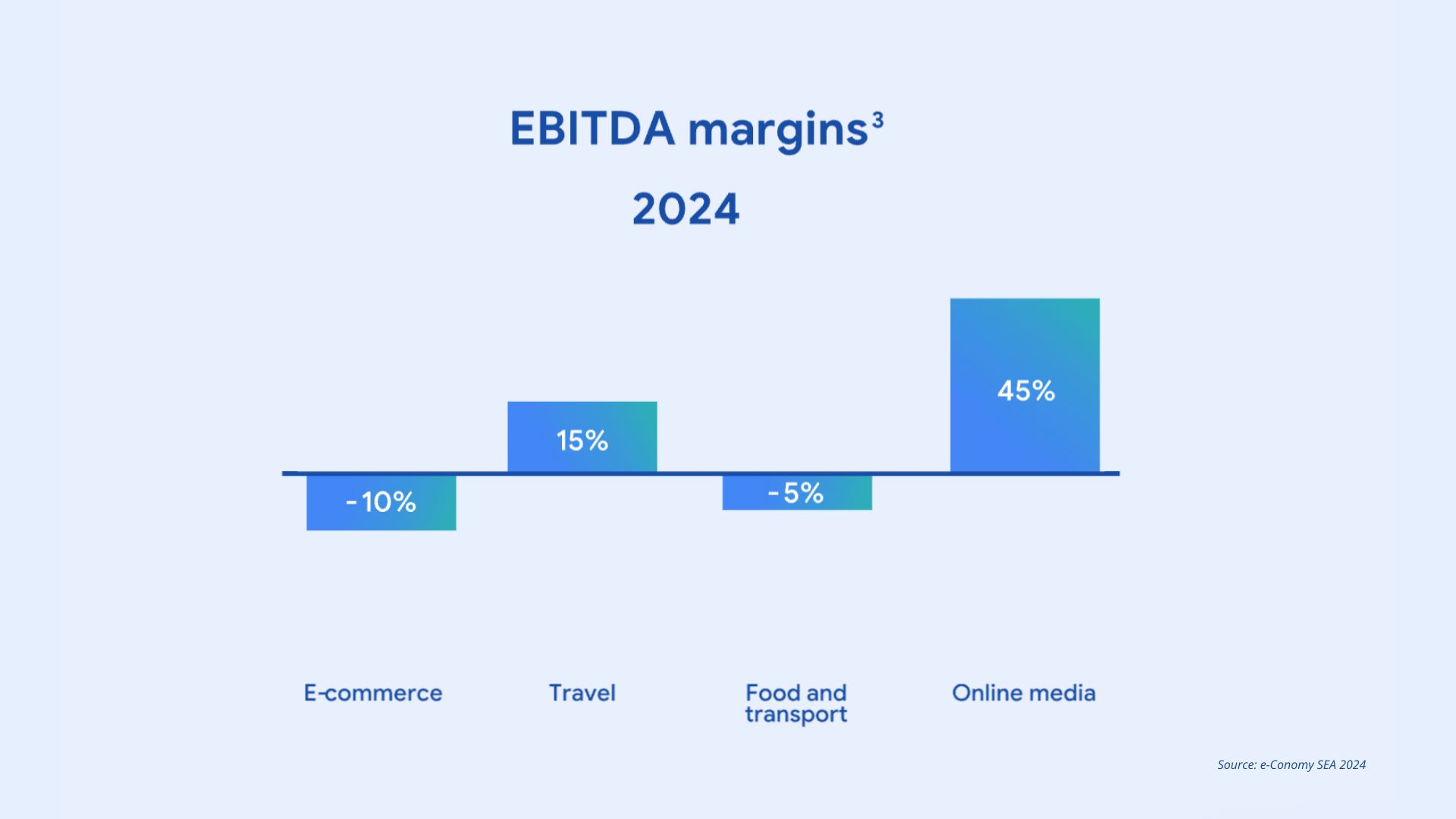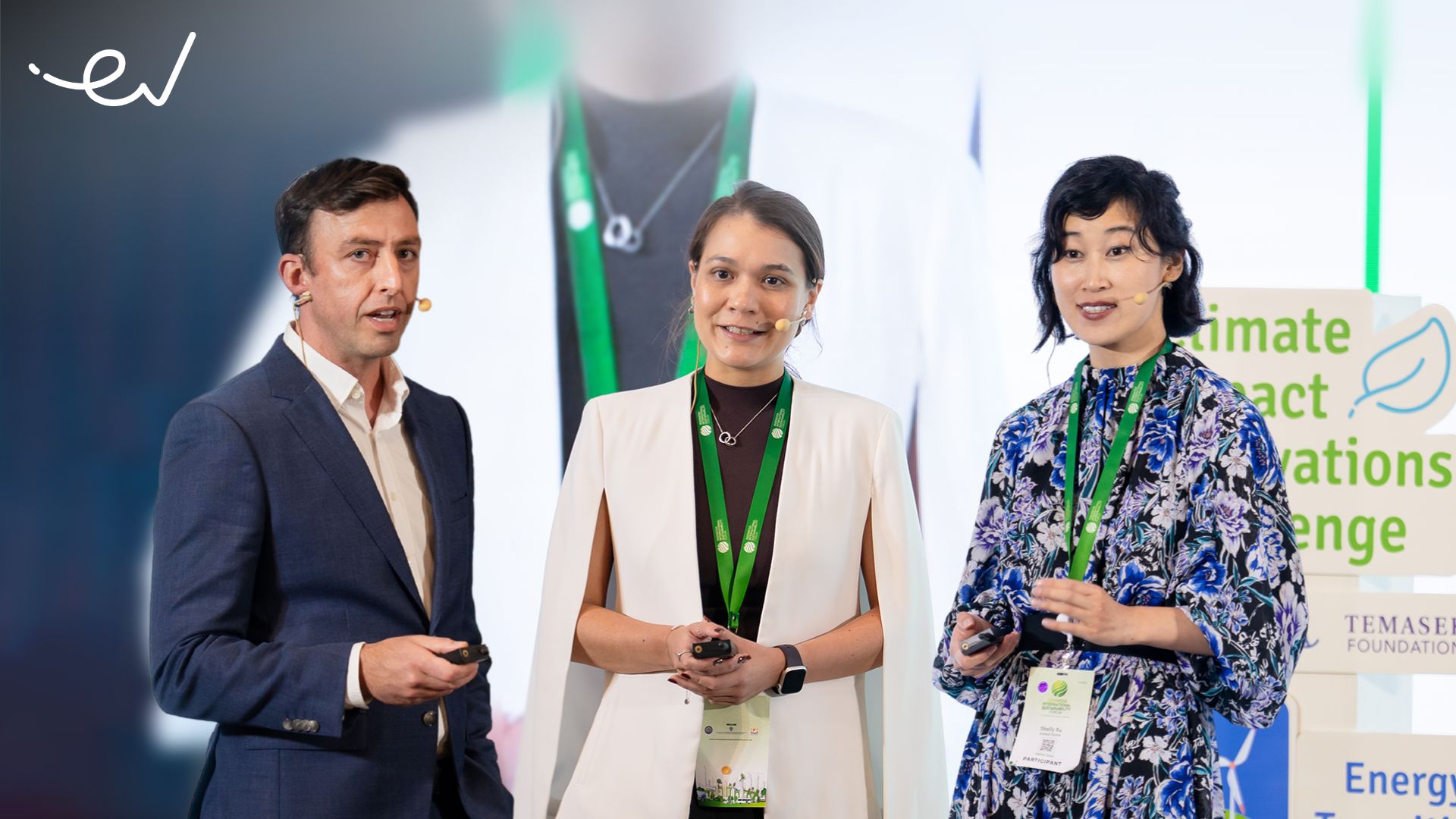Southeast Asia’s digital economy is poised for significant growth. The latest report from e-Conomy SEA 2024 by Google, Temasek, and Bain shows how the digital economy demonstrates solid performance with double-digit growth across GMV, revenue, and profit, proving growth can happen alongside profitability.
The report shows a critical baseline for Southeast Asia (SEA)’s digital economy trends and metrics. It also lays out the four enablers to revitalize the funding landscape, signaling an era of recalibration. Though most have been achieved, East Ventures pleasantly stands out as an outlier and consistently surpasses the baseline.
East Ventures has maintained robust growth and driven significant value within our ecosystem, with revenue from our growth-stage portfolio companies growing 40% year on year, outpacing SEA’s overall revenue growth rate by almost three times. This not only underlines our approach to investment resilience but also positions us ahead of regional benchmarks, both among other companies and venture capital (VC) firms. We have strong exit plans for the near future and are gearing up for exciting updates from the ecosystem.
At East Ventures, we believe that profitability is an important goal for our portfolio companies. Even though every stage of startup will have a different approach and journey toward profitable financial performance, we have seen some companies, bolstered by solid fundamentals and a clear roadmap to profitability, are well-positioned to ensure long-term financial stability and profitability.
Notably, according to the report, many sectors like e-commerce, travel, and food, are still exhibiting negative EBITDA margins. In comparison, 70% of our growth-stage portfolio companies are profitable, and more than 80% of them have shown improved EBITDA margins over the last year, achieving an average margin improvement of 54%. In absolute dollar terms, our growth-stage portfolio companies’ profit grew by 32%, compared to SEA’s 24%.
Our portfolio companies have shown remarkable resilience and achieved superior growth in 2024. Below are some highlights from e-commerce, travel, online media, and other sectors that rose above the baseline:
E-commerce:
Sociolla achieved more than 50% year-on-year growth and reached profitability for the first half of 2024, outperforming its competitors in a highly competitive beauty commerce segment in Indonesia. It can execute this through shrewd strategic decisions and cost management. Sociolla has evolved from beauty e-commerce to integrated beauty commerce (online and offline channels) powered by beauty communities and journals.
ShopBack is one of the largest regional cashback platforms, with more than 45 million users across APAC. Through innovations in value-added services to merchants and improved product offerings to shoppers, ShopBack managed to achieve close to 25% growth year on year, cementing itself as the platform of choice for shoppers and merchants alike. At the same time, they have been able to improve their EBITDA margins significantly through offering more services to customers, improving monetization, and optimizing internal operations.
As one of Southeast Asia’s largest content and community platforms for parents and a direct-to-consumer retailer, The Parentinc achieved a growth rate of around 50% compared to the previous year and secured profitability with positive net income. The Parentinc is one of Asia’s fastest-growing tech companies headquartered in Singapore. The company also owns and operates Mama’s Choice, one of the fastest-growing mom and baby brands, and acquired Motherswork, an omnichannel retailer specializing in premium mother, baby, and kids’ products.
Southeast Asia’s leading direct-to-consumer (DTC) e-commerce company, RPG Commerce, shows around 50% annual growth with positive net income in Q3 2024. The company is dedicated to building cutting-edge everyday essentials, ranging from innovative activewear to home and living products. RPG currently has an in-house portfolio of 10+ brands, including Montigo and Cosmic Cookware. It has a presence in Singapore, Malaysia, and Australia and is expanding into the Middle East.
B2B commerce may not hog the headlines, but it is an extremely high-growth market segment. Praktis is a leading supply chain platform and saw strong revenue growth of close to 35%, doubling that of the broader e-commerce sector. In addition, due to the lower marketing needs of the B2B segment, they have been able to achieve this growth all while being profitable for close to two years and consistently improving their value proposition to customers.
Mighty Jaxx is a D2C future culture company that designs and manufactures tech-enabled collectibles and lifestyle products in partnership with more than 120 global talents, and brands such as Netflix, Disney, Hasbro, and Toei Animation, shipping millions of “phygital” collectibles to over 90 countries worldwide. The firm has been growing fast on the back of strong global consumer demand and has achieved EBITDA profitability as of Q3 2024
Travel:
As Southeast Asia’s leading technology company and super app, Traveloka outpaced the market with double-digit growth despite a fiercely competitive market. The company offers more than 20 products that include comprehensive travel services, from transportation to accommodations, attraction discovery, insurance products, and financial services. Today, the company serves six countries across the SEA region and has been profitable since the end of 2023.
Fintech:
Komunal is a leading Indonesian fintech platform revolutionizing access to financial services by connecting underserved communities with digital banking solutions and transforming rural banks. It more than doubled its revenue over the past 12 months while maintaining a strong positive EBITDA margin. Komunal more than doubled the rural banks on its platform and currently has the largest rural bank ecosystem in Indonesia, covering close to 20% of the country’s rural banks.
Food and beverage (F&B):
Fore Coffee maintained a 200% three-year CAGR and doubled their positive EBITDA margins over the last 12 months, outperforming all comparables in the F&B sector, a feat extremely difficult in a highly competitive market such as coffee. This is brought about by a combination of adopting the right growth strategy and offering superior product and services.
ISMAYA GROUP grew at a three-year CAGR of 40% while maintaining profitability, exceeding the CAGR of public Indonesian F&B companies by 2.5 times. This is largely driven by efforts to double down in the mass market restaurant segment and hero brands, particularly The People’s Cafe, Djournal Coffee, and Osteria Gia.
Online media:
The company that started as a news platform and expanded into a complete media ecosystem, IDN, also surpassed a more than 70% annual growth rate and reached profitability ahead of expectations by the first half of 2024. IDN is a consumer media platform company catering to Millennials and Gen-Z in Indonesia.
Ruangguru has emerged as a clear winner in the market as many edtech companies had to close down because of the various shifts in learning preferences throughout the COVID-19 recovery period. Ruangguru has consistently demonstrated agility in adapting to changing demands, as it was able to expand to offline learning centers when the demand for offline education returned. It also launched a viral series online, Clash of Champions, which received more than 100 million views on YouTube, to drive lead generation for its various products.
Logistics:
The leading Indonesian logistic tech startup that connects shippers and businesses with available warehouses and transporters across Indonesia, waresix, recorded a more than 25% annual growth rate while remaining EBITDA positive this year. The tech-enabled platform for logistics services provides an end-to-end logistics provider where people can look for and book ready-to-rent warehouses and trucking services through its software.
The company provides data-driven end-to-end logistics services to enterprises in Southeast Asia. Inteluck achieved remarkable annual growth at 90% and showed positive financial performance. Inteluck’s fundamental goal is to improve logistics efficiency via the use of technology and data while providing value for both customers and providers.
Sustainability technology:
Xurya is the leading solar panel manufacturer in Indonesia, with more than 100MWp under management. To drive the adoption of green solar energy, Xurya offers its clients 0 capex offerings. The company has been EBITDA positive and targets net profit positive by next year.
In conclusion, we believe Southeast Asia’s digital economy stands as a testament to the power of resilience. As we witness double-digit growth, profitability becomes evident for many businesses in the region as not just an aspiration but an achievable reality. This is thanks to the founders’ mindset that embraces adaptability, especially in challenging times and amidst economic headwinds. The current environment presents a golden hour opportunity for founders and investors.
Despite the challenges faced by various sectors, our portfolio companies’ positive EBITDA results highlight the importance of robust fundamentals and a clear roadmap for positive financial performance.
That is why we remain bullish on Southeast Asia’s digital economy.








